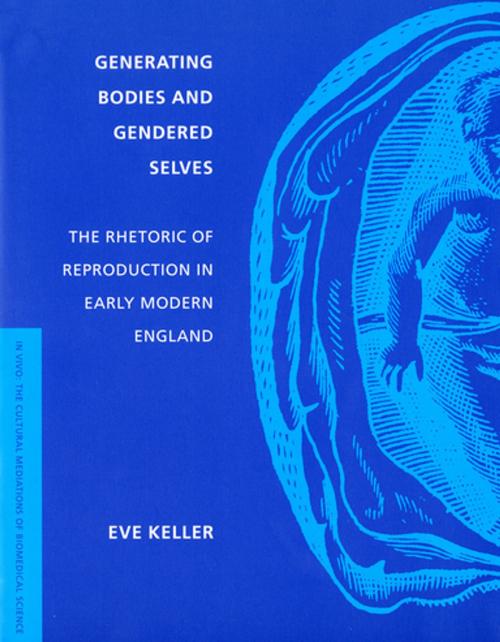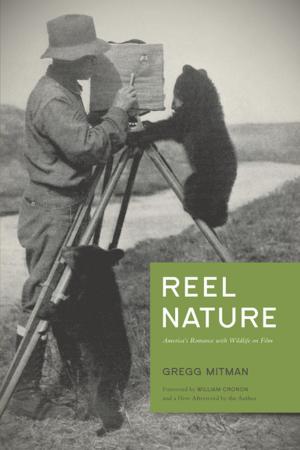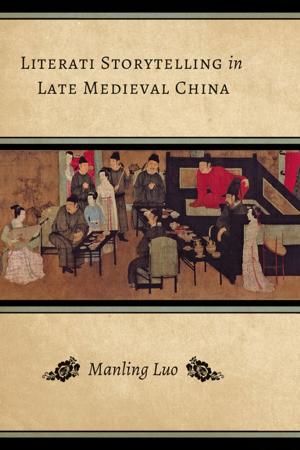Generating Bodies and Gendered Selves
The Rhetoric of Reproduction in Early Modern England
Nonfiction, Social & Cultural Studies, Social Science, Anthropology, Fiction & Literature, Literary Theory & Criticism| Author: | Eve Keller | ISBN: | 9780295990767 |
| Publisher: | University of Washington Press | Publication: | November 15, 2011 |
| Imprint: | University of Washington Press | Language: | English |
| Author: | Eve Keller |
| ISBN: | 9780295990767 |
| Publisher: | University of Washington Press |
| Publication: | November 15, 2011 |
| Imprint: | University of Washington Press |
| Language: | English |
Generating Bodies and Gendered Selves examines the textured interrelations between medical writing about generation and childbirth - what we now call reproduction - and emerging notions of selfhood in early modern England. At a time when medical texts first appeared in English in large numbers and the first signs of modern medicine were emerging both in theory and in practice, medical discourse of the body was richly interwoven with cultural concerns.
Through close readings of a wide range of English-language medical texts from the mid-sixteenth to the early eighteenth centuries, from learned anatomies and works of observational embryology to popular books of physic and commercial midwifery manuals, Keller looks at the particular assumptions about bodies and selves that medical language inevitably enfolds. When wombs are described as "free" but nonetheless "bridled" to the bone; when sperm, first seen in the seventeenth century by the aid of the microscope, are imagined as minute "adventurers" seeking a safe spot to be "nursed": and when for the first time embryos are described as "freeborn," fully "independent" from the females who bear them, the rhetorical formulations of generating bodies seem clearly to implicate ideas about the gendered self.
Keller shows how, in an age marked by social, intellectual, and political upheaval, early modern English medicine inscribes in the flesh and functioning of its generating bodies the manifold questions about gender, politics, and philosophy that together give rise to the modern Western liberal self - a historically constrained (and, Keller argues, a historically aberrant) notion of the self as individuated and autonomous, fully rational and thoroughly male.
An engagingly written and interdisciplinary work that forges a critical nexus among medical history, cultural studies, and literary analysis, Generating Bodies and Gendered Selves will interest scholars in early modern literary studies, feminist and cultural studies of the body and subjectivity, and the history of women's healthcare and reproductive rights.
Generating Bodies and Gendered Selves examines the textured interrelations between medical writing about generation and childbirth - what we now call reproduction - and emerging notions of selfhood in early modern England. At a time when medical texts first appeared in English in large numbers and the first signs of modern medicine were emerging both in theory and in practice, medical discourse of the body was richly interwoven with cultural concerns.
Through close readings of a wide range of English-language medical texts from the mid-sixteenth to the early eighteenth centuries, from learned anatomies and works of observational embryology to popular books of physic and commercial midwifery manuals, Keller looks at the particular assumptions about bodies and selves that medical language inevitably enfolds. When wombs are described as "free" but nonetheless "bridled" to the bone; when sperm, first seen in the seventeenth century by the aid of the microscope, are imagined as minute "adventurers" seeking a safe spot to be "nursed": and when for the first time embryos are described as "freeborn," fully "independent" from the females who bear them, the rhetorical formulations of generating bodies seem clearly to implicate ideas about the gendered self.
Keller shows how, in an age marked by social, intellectual, and political upheaval, early modern English medicine inscribes in the flesh and functioning of its generating bodies the manifold questions about gender, politics, and philosophy that together give rise to the modern Western liberal self - a historically constrained (and, Keller argues, a historically aberrant) notion of the self as individuated and autonomous, fully rational and thoroughly male.
An engagingly written and interdisciplinary work that forges a critical nexus among medical history, cultural studies, and literary analysis, Generating Bodies and Gendered Selves will interest scholars in early modern literary studies, feminist and cultural studies of the body and subjectivity, and the history of women's healthcare and reproductive rights.















